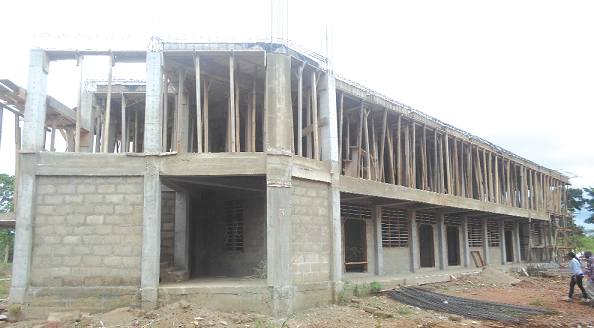The Newmont Ahafo Development Foundation (NADeF), set up by Newmont Ghana Gold Limited for sustainable development at its operational areas in the Bong Ahafo Region, has constructed 110 projects and social amenities at a total cost of about GH¢19,920,751 in 10 communities in the area.
The projects include health centres, classroom blocks, teachers’ quarters, water and sanitation facilities and the extension of electricity to some communities.
The foundation has also invested in natural resources in the area.
Foundation
The foundation, established 10 years ago, has also supported capacity building of teachers and pupils and the economic empowerment of people in beneficiary areas.
The mining company donates $1 per ounce of gold it produces and one per cent of its annual pre-profit to the foundation.
This came to light during a media tour of the projects as part of activities to commemorate the 10th anniversary of NADeF.
The Executive Secretary of NADeF, Mrs Elisabeth Opoku-Darko, explained that some funds had also been invested in the cultural heritage of the 10 host communities located in the Asutifi North and the Tano North districts in the region.
Projects
One of the major projects being executed by the foundation is a police training school at Kenyasi No.1, which is about 75 per cent complete.
Started in 2017, the project is expected to be completed in the second quarter of 2019 to help in the efficient training of police personnel.
The foundation is also assisting in the construction of a satellite campus for the University of Energy and Natural Resources (UENR) at Kenyasi No.2.
The UENR satellite campus, which is to be completed in September 2019, will offer mining-related programmes.
Another project the foundation is supporting is the construction of a Health Information Records Unit (HIRU) at the Gyedu Health Centre to generate and securely keep patients’ data.
A senior finance officer at the facility, Mr Alhassan Ikililiu, mentioned malaria and respiratory tract infections (RTIs) as the commonest diseases recorded at the centre.

